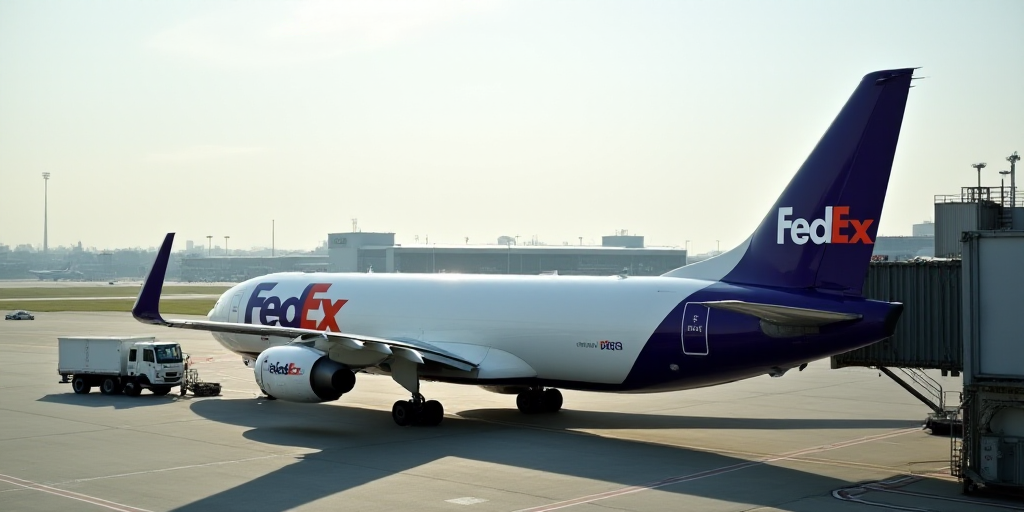Background and Key Players
The United States Department of Transportation (DOT) has initiated a dispute with Mexico, alleging that certain actions taken over the past three years have negatively impacted US airlines operating at Benito Juarez International Airport (AICM) in Mexico City. These actions are said to contravene the Air Transport Agreement signed between the two countries in 2015.
Key players include Sean P. Duffy, the US Secretary of Transportation, and his Mexican counterpart, Jorge Alcocer Varela, who leads the Secretaría de Comunicaciones y Transportes (SCT) in Mexico. The disagreement also involves major US airlines such as Delta, United Airlines, and American Airlines, along with Mexican cargo airlines like Aeromexico, Volaris, and Estafeta.
DOT’s Allegations
The DOT claims that the following actions by Mexico have adversely affected US airlines:
- Temporary reduction in maximum operations per hour at AICM: The limit was reduced from 61 to 52 operations per hour (effective August 31, 2022), and then further reduced to 43 operations per hour (effective August 31, 2023). This change affected Delta, United Airlines, and American Airlines.
- Relocation of exclusive cargo airlines: Mexican cargo airlines like UPS, FedEx, and Atlas Air were moved from AICM to the newly opened Felipe Ángeles International Airport (AIFA) on September 1, 2023. This relocation resulted in additional costs for US airlines.
The DOT argues that these actions violate Article 11 of the air transport agreement, which requires both parties to provide fair and equal opportunities for airlines to compete in international air transportation services.
Mexico’s Response
In response, the Mexican government (through the Secretaría de Comunicaciones y Transportes – SCT) stated that it remains committed to a safe, efficient, and competitive aviation sector. The SCT mentioned that measures have been implemented as part of a comprehensive strategy to strengthen the Mexico City airport system, focusing on safety, efficiency, and competitiveness.
Key improvements include:
- Integrated remodeling of AICM: Ongoing upgrades aim to enhance the airport’s overall performance.
- Improved slot management: Better allocation of takeoff and landing time slots has allowed for an increase from 43 to 44 operations per hour, with potential further increases in the remaining year.
- Restoration of slots for US airlines: Slots previously removed from US passenger airlines operating commercial flights have been returned, a fact well-known within the industry.
The Mexican government also explained that the temporary reduction in operations at AICM was implemented following guidelines from the International Air Transport Association (IATA) and the Airports Council International (ACI), ensuring a fair, transparent, and non-discriminatory reduction in airport capacity.
Historical Context and Negotiations
This dispute comes amidst other tensions between the US and Mexico, including issues related to drug trafficking, the T-MEC trade agreement, and agricultural exports. In June 2023, Jorge Alcocer Varela (then SCT head) discussed the AICM cargo relocation and Mexico’s enhanced aviation safety categorization with Pete Buttigieg, the US Secretary of Transportation, during a visit to AIFA.
Marcelo Ebrard, who was then the Secretary of Foreign Affairs and is now Mexico’s Secretary of Economy, was also present during these discussions. His role in current negotiations with the US government highlights the importance of this dispute resolution.
Key Questions and Answers
- What is the main issue in this dispute? The US DOT accuses Mexico of violating the Air Transport Agreement by implementing measures that negatively impact US airlines operating at AICM.
- What actions by Mexico are in question? The temporary reduction of maximum operations per hour at AICM and the relocation of exclusive cargo airlines to AIFA.
- How has Mexico responded? Mexico asserts its commitment to a safe, efficient, and competitive aviation sector while implementing measures to strengthen the Mexico City airport system.
- What is the historical context of this dispute? This issue arises amidst broader US-Mexico tensions, including drug trafficking, trade agreements, and agricultural exports. Negotiations between the two countries have involved discussions on AICM cargo relocation and Mexico’s enhanced aviation safety categorization.






